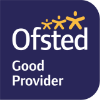- Home
- Curriculum
- Subjects
- Phonics and Reading
Phonics and Reading
Intent
At Sayes Court School, we are committed to developing confident, fluent readers who enjoy reading throughout their lives. Our structured approach to reading and phonics supports every learner from Nursery through to Year 6, equipping them with the essential skills needed to access the wider curriculum. We aim to ensure that every child not only learns to read but also reads to learn and enjoys books for pleasure.
We use the Little Wandle Letters and Sounds program to deliver high-quality, systematic phonics instruction. This program ensures consistency and progression across all year groups, providing a clear pathway for teaching sounds, blending, and segmenting. The program also includes frequent assessment points to identify any children needing extra support, allowing us to intervene early and help every child achieve reading success.
What It Looks Like in Practice
-
Nursery focuses on Phase 1 and 2 phonics.
-
Reception covers Phases 2, 3, 4, and 5, with the aim for children to be secure in Phases 2 and 3 by the end of Reception.
-
Year 1 focuses on Phases 3, 4, and 5, working towards the Phonics Screening Test and aiming for security in Phase 5 by the end of the year (some children may still work on Phase 2).
-
Year 2 review Phases 5 and providing additional support to any children who did not pass the Phonics Screening to address any phonetic gaps.
-
Each phonics lesson introduces a new sound (phoneme) and its corresponding letter (grapheme), helping children understand the phoneme/grapheme relationship, pronunciation, writing, and application in reading and writing.
-
All children in Nursery through to Key Stage 1 take part in daily phonics lessons. Where children have not met the national standard for phonics, they continue to receive phonics interventions in Key Stage 2.
-
Children have regular opportunities to apply their phonics knowledge.
-
Every morning, children read a book of their choice independently for at least 15 minutes before lessons begin. EYFS teachers provide support until children develop their reading stamina.
-
At the end of each day, teachers and LSAs read aloud to their classes, choosing either a short story or a novel based on the class's needs and interests.
-
Once a week, all classes participate in a Reading for Pleasure session, during which children read any book of their choice in a comfortable environment, with hot chocolate, juice, and biscuits provided.
-
Guided reading lessons focus on key reading skills that are reinforced throughout the curriculum.
-
Each class has dedicated weekly library time, with adults actively supporting children in selecting books they enjoy.
-
Teachers carefully select reading materials for storytelling, classroom libraries, and reading across the curriculum, incorporating reading for information or as a stimulus for writing.
-
Opportunities for vocabulary development are built into the school day and across the curriculum.
-
Children are encouraged to voice their opinions and provide feedback on the reading materials available at school.
-
Parents are actively involved in their children’s reading by listening to them read daily and participating in school events like book tastings and author visits. They are also invited to observe guided reading lessons.
-
At the end of each term, children take part in reading assessments.
Assessment
-
Children from Nursery through Year 1 are assessed regularly using formative and summative methods. Year 1 children also undertake practice phonics screenings throughout the year.
-
Reception students are assessed after every half term to monitor their progress in phonics.
-
Year 1 students take the Phonics Screening Test.
-
Year 2 students are reassessed at the end of Autumn 1 for Phase 5 sounds to determine their readiness to transition away from the phonics program.
-
Rapid Catch-Up assessments are conducted every 5 weeks to monitor impact and progress for children needing phonics interventions beyond Year 1.
Programs and Schemes
-
Little Wandle Letters and Sounds (Nursery to Year 1)
-
Little Wandle Rapid Catch-Up (for children beyond Year 1 who need additional support)
-
Little Wandle Fluency books (for Year 2 children transitioning from phonics to fluent reading)
-
Little Wandle E-books (accessible at home to reinforce phonics learning)
-
Literacy Shed (KS2 comprehension resources)
-
Cracking Comprehension (for developing comprehension skills in KS2)
-
Manic Street Teachers (creative literacy resources for KS2)





